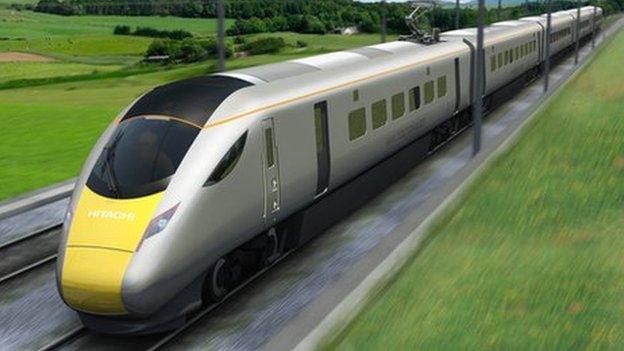Rail electrification: Swansea council 'angry' at U-turn
- Published
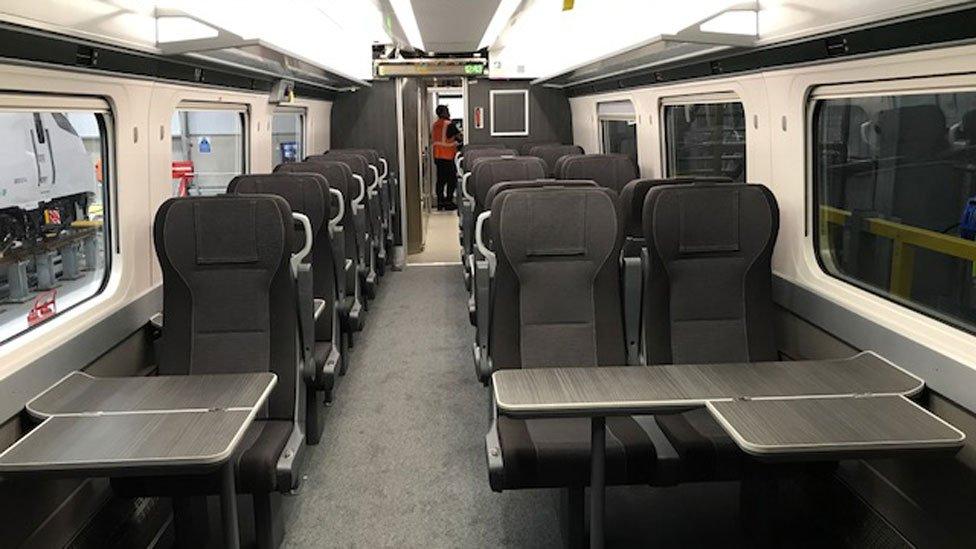
New bi-modal electric/diesel trains cut journey times without the disruption, UK ministers say
Swansea is "angry" at a decision to scrap the electrification of the main railway line to the city, the council's leader has said.
Rob Stewart said they felt "betrayed" after being assured the upgrade from London would continue beyond Cardiff.
Transport Secretary Chris Grayling said new hybrid trains would give the same benefits without any disruptive work.
Wales' Economy Secretary Ken Skates said it remained an ambition to electrify south Wales valley lines.
Swansea was promised electric trains from London in 2012, after a campaign to extend the upgrade promised to Cardiff in 2011.
Thursday's announcement - made by Mr Grayling in a newspaper article, external - follows slippage of declared completion dates for the work.
Rob Stewart says people have a "real reason to be very angry"
Mr Stewart said: "We are angry. We feel we've been betrayed by the UK government.
"We've had meeting after meeting with ministers about the electrification of the line to Swansea and they told us it would happen. We were assured it would go ahead.
"Our private sector partners have been side by side with us on this and I suspect they will be equally angry, frustrated and disappointed with this announcement."
The council leader said he also feared for the future of Swansea's tidal lagoon project, awaiting government approval after being given the green light by advisers in January.
Ken Skates said the decision was a "bitter blow for Wales"
Reacting for the Welsh Government, Mr Skates told BBC Radio Wales it amounted to "years of broken promises" and called for powers over rail infrastructure to be devolved.
"It's an eye-watering, staggering fact, that in the current period, those who are responsible for rail infrastructure in Wales, the UK Government, have spent just 1.5% of the available funding on the line.
"That's less than the Welsh Government has spent on rail infrastructure, and we're not responsible for it."
Asked if the Swansea decision would hamper wider rail plans, he said: "We will be electrifying services in the valleys, there is no doubt about our ambition for that.
"What we're also keen to do is to make sure that we're at the forefront of new innovation of rolling stock, which could include battery power electrification, overhead electrification lines as well."
Swansea East MP Carolyn Harris claimed people had been "misled" by UK ministers
Plaid Cymru's transport spokesman, MP Jonathan Edwards, said it was a "disgraceful U-turn by the British Government breaking a clear promise to the people of Wales".
Referring to the HS2 high speed rail project, he accused the UK government of "favouring large English cities over the Welsh economy, and Welsh taxpayers are being asked to pay for the privilege".
Swansea East Labour MP Carolyn Harris raised the issue in the House of Commons, calling on Mr Grayling to come to Parliament and tell MPs why he had "misled" people on the issue of electrification to Swansea.
Alun Cairns says the new trains are "quite fantastic"
Welsh Secretary Alun Cairns defended the decision, saying "faster, modern trains" would still cut the journey time between London and Swansea by 15 minutes.
"Disruptive electrification works between Cardiff and Swansea will no longer be needed because the new fleet of trains will be doing the route in exactly the same amount of time as they would be on a fully-electrified route," he said.
"This means west Wales remains open for business whilst we concentrate on growing the local economy through modern technology and better connectivity."
Mick Whelan, general secretary of the rail union Aslef, said the UK Government's decision showed a "lack of ambition".
He also questioned the effectiveness of the new trains.
"Bi-mode trains are more expensive, less reliable and slower to accelerate than electric trains," he said.
"Passengers on packed trains today will be on even more packed trains in 10 years' time."
- Published20 July 2017
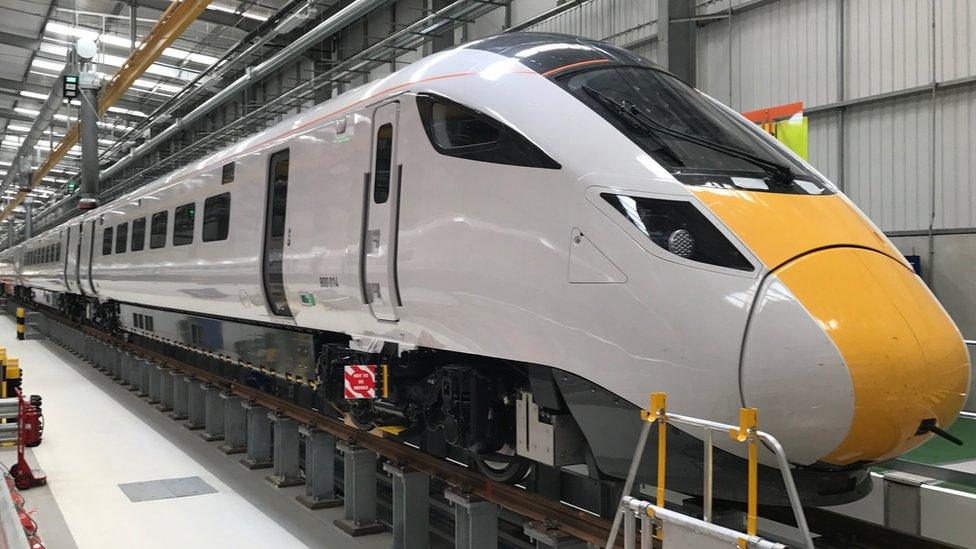
- Published18 July 2017
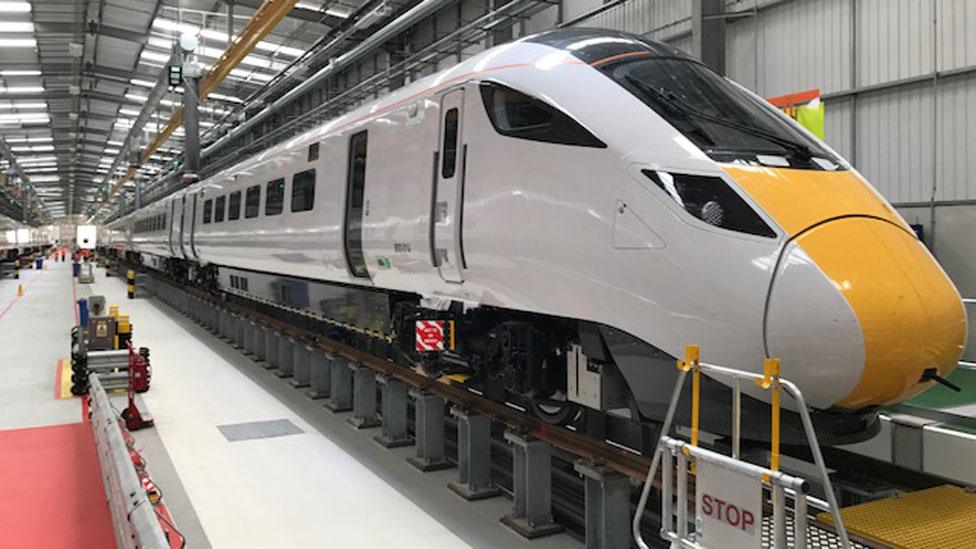
- Published3 March 2017
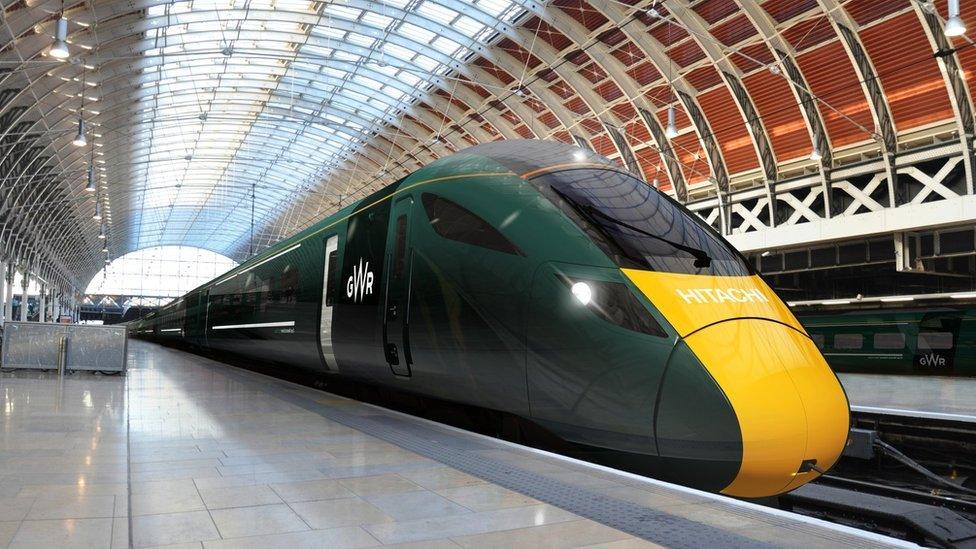
- Published10 November 2016
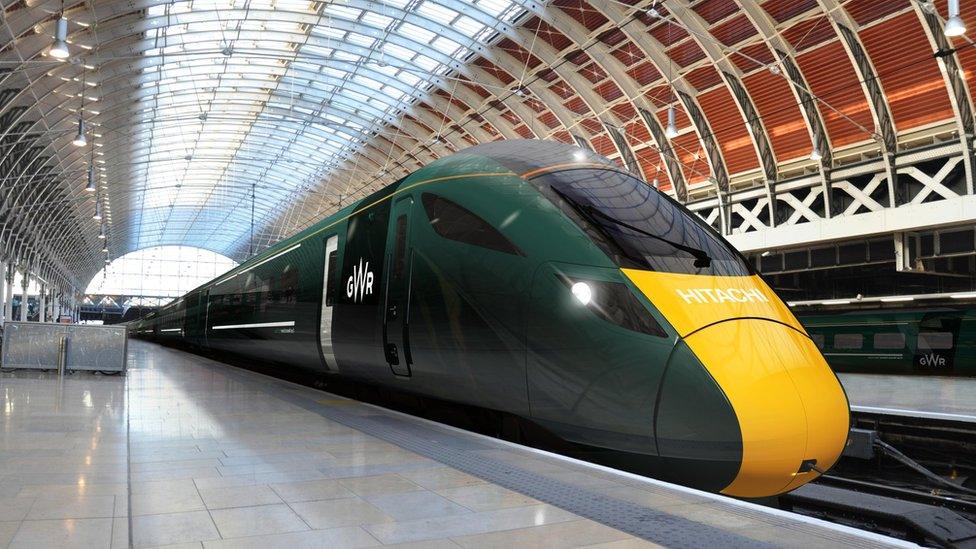
- Published8 November 2016
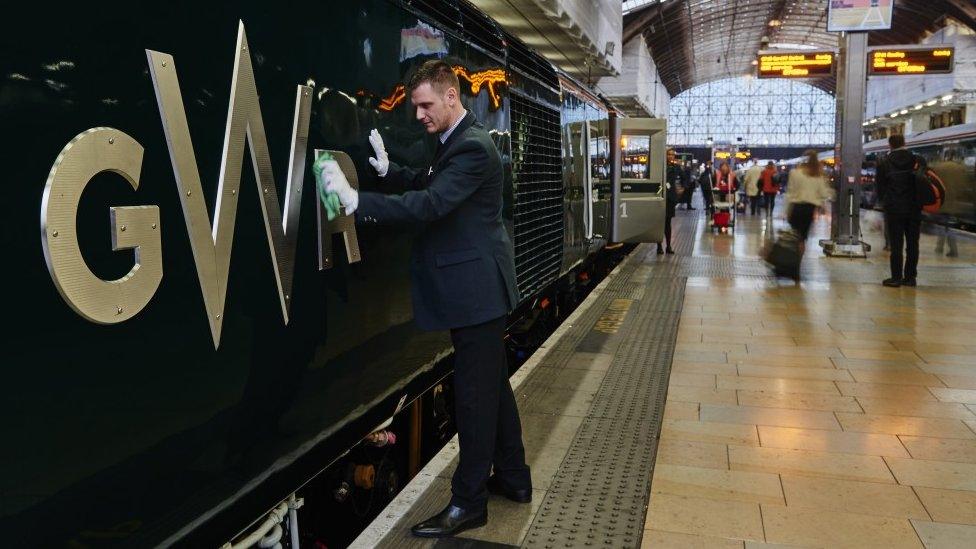
- Published8 November 2016

- Published25 November 2015

- Published20 November 2015
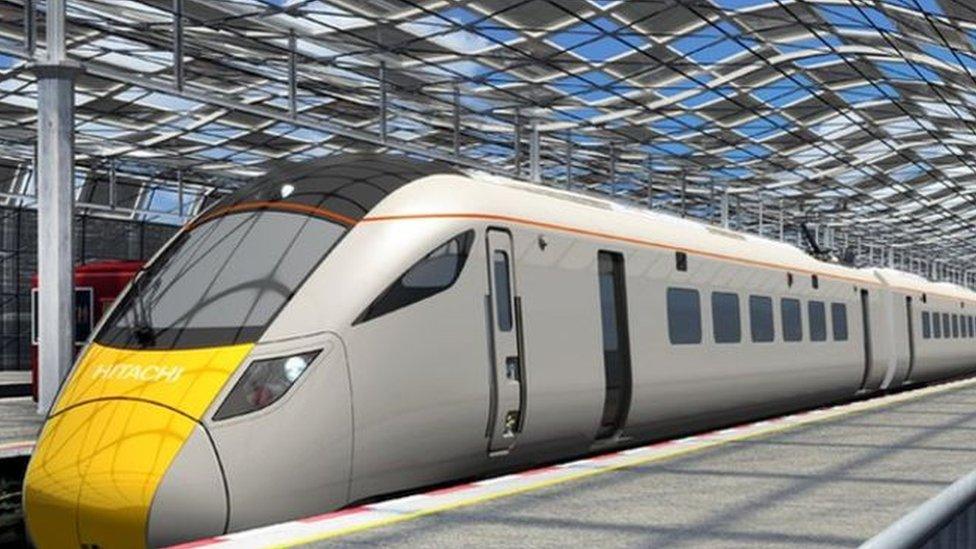
- Published25 June 2015
